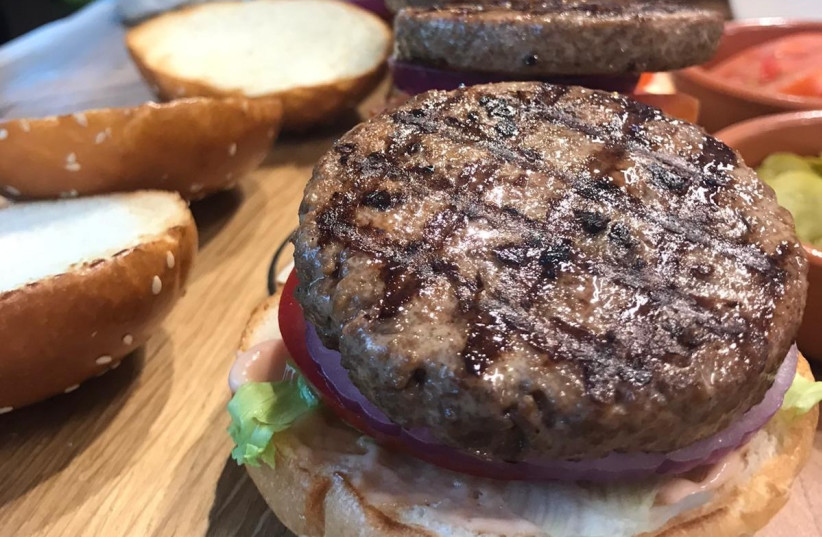Imagine this: You’re ready to sit down and relax with your family after a long week and dig into your favorite burger. Before you do, you remember your doctor warned you about the amount of red meat you’ve been eating, and the fact that you’re on a diet of increased fiber, and that you’re lacking vitamin D. Suddenly, the simple act of placing an order becomes burdensome and complicated. You dream of a future where you have the power to select what is in your burger, and what is not.
Thanks to Israel-based start-up SavorEat, that is no longer the stuff of science fiction novels and movies. It’s happening.
SavorEat leverages the Internet of Things and cloud systems, digital manufacturing and artificial intelligence to customize plant-based patties based on consumer preferences. The SavorEat Robot Chef makes these patties in real time for those eating at various food establishments.
It will look like this: You sit down at your favorite restaurant and scan the QR code that automatically opens up the SavorEat application. In a few short steps, you easily customize the level of protein, nutrients or fat in your patty, as well as your cooking preferences and seasoning, eliminating concerns over dietary restrictions or allergens. Your preferences are then electronically sent to the Robot Chef, which creates the patty in under 10 minutes, entirely without human interference. A member of the given establishment completes the burger and serves it to you, nice and warm. This is SavorEat’s vision.
SavorEat was founded in 2018 by CEO Racheli Vizman, chief science officer Prof. Oded Shoseyov, and Prof. Ido Braslavsky. A team composed of specialists from the fields of food science, plant molecular biology, mechanical engineering, biochemistry and business enables the company to successfully replicate the taste and texture of meat using non-GMO, plant-based products.

The first successful alternative-meat burger came out in 2016, when Beyond Meat debuted its plant-based burger. In the years since, the plant-based meat market has seen exponential success, and is only expected to grow.
While vegans and vegetarians may only account for 4% and 6% of global consumers, those who actively restrict their consumption of animal-based products – known as flexitarians – account for a staggering 42%. Despite this undeniable shift in consumer attitudes and the subsequent promotion of animal-welfare and sustainable living, several gaps remain within the industry.
Meat-eaters may step away from animal-based products for many reasons, but a common one is a concern for the environment. Consumers turn to popular alternative-meat brands to do their part. However, such companies haven’t been entirely transparent regarding their ingredients, their waste production or their carbon footprint.
While almost two-thirds (65%) of consumers look for food products that will help them live a more sustainable and socially responsible life, they want to know how these products were made, and with what ingredients.
In order to use the SavorEat Robot Chef, service providers simply need enough physical space to keep the device and its ingredient cartridges, which need to be refilled periodically.
From the time customers first make their order to the time they actually eat their burger, service providers can collect consumer preferences, enabling them to provide a unique dining experience backed by relevant data.
Not only does SavorEat address the market’s need for personalization and transparency on ingredients, it streamlines the production line for food-service providers. Restaurants can reduce labor costs, complexities within production and food waste, as each patty is made to order, without excess.
We exist in an increasingly individualistic culture, one that values independence and prioritizes uniqueness. Consumers want to enjoy healthy food that is both good for them and for the planet – and now they can.
